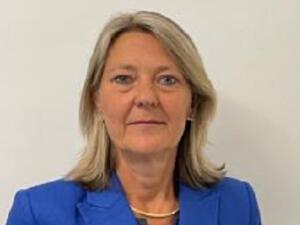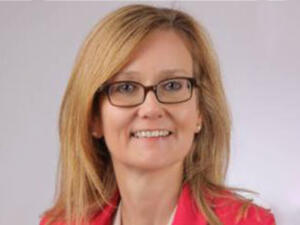UPC will not reopen PI proceedings in 10x Genomics vs NanoString
10x Genomics and its counsel Bardehle Pagenberg have failed in their application to the UPC to reopen the PI proceedings against NanoString over diagnostic devices. However, now that NanoString's financial situation has improved again, there is new momentum for the main proceedings, which will start in September.
8 August 2024 by Mathieu Klos
10x Genomics’ application to the UPC to reopen the PI proceedings shows how bitterly the US biotech company is fighting with competitor NanoString Technologies. An agreement seems a long way off.
In February, the UPC Court of Appeal overturned the Munich local division’s preliminary injunction against NanoString in Europe. The Court of Appeal ruled that it is likely that the patent-in-suit EP 4 108 782 will be declared invalid in the main proceedings. This means that there is no basis for the PI. The ruling affects NanoString’s CosMx Spatial Molecular Imager (SMI) instruments and CosMx reagents for RNA detection.
10x Genomics and its go-to law firm Bardehle Pagenberg were not satisfied with the unfavourable ruling from the first panel, headed by UPC president Klaus Grabinski. As a result, they called on the second panel of the Court of Appeal to reopen the PI proceedings.
No fundamental errors
Generally, a decision from the appeals court concludes PI proceedings. However, the UPC Agreement provides for the possibility of the same court reviewing the decision again (Rule 245 UPC Rules of Procedures). In order to do this, an applicant must provide very important reasons, such as fundamental procedural errors by the court or if an act of the court constitutes a criminal offence. Such applications are also possible in national proceedings, for example in Germany, but parties rarely make such applications in patent disputes.
In the current case, 10x Genomics complained that the Court of Appeal had based its decision on the personal expertise of individual members of the panel. The company argued this fundamentally violated the rules on the burden of proof and the taking of evidence. Furthermore, the Court of Appeal’s basic decision on costs was arbitrary (case ID: UPC_CoA_335/2024).
On 6 August, the second panel of the UPC Court of Appeal, led by Rian Kalden, dismissed 10x Genomics’ application as inadmissible because no fundamental procedural error could be identified in either aspect. The panel also included Ingeborg Simonsson and Patricia Rombach.
- Rian Kalden
- Ingeborg Simonsson
- Patricia Rombach
This decision does not come as a surprise. If the second panel had reopened proceedings, it would mean there had potentially been procedural errors just as the UPC was starting out. The decision in February was the first ever by the Court of Appeal and attracted a great deal of attention.
Dispute continues
Now, the attention will focus on the first main proceedings in Munich. On 18 September, Munich central division under presiding judge Ulrike Voss will hear NanoString’s revocation claim against EP 2 794 928 (case ID: ACT_551180/2023). Here too, as in all other proceedings, the two opponents will be represented by their regular counsel.
Bardehle has a very close relationship with 10x Genomics and its chief legal officer Eric Whitaker. Lawyers Tilman Müller-Stoy and Tobias Wuttke as well as patent attorney Axel Berger lead the Bardehle Pagenberg team.
- Oliver Jüngst
- Daniela Kinkeldey
- Moritz Schröder
NanoString relies on a mixed team from Bird & Bird since 10x Genomics brought the initial claims to German courts. Düsseldorf-based partner Oliver Jüngst and Munich-based patent attorney Daniela Kinkeldey are in the lead. Counsel Moritz Schroeder is also very present in the case.
NanoString’s Chapter 11 situation over
With the US manufacturer of analysis technology Bruker having acquired Nanostring Technologies in May, the dispute is now likely to gain additional momentum. In February 2024, NanoString filed for Chapter 11 bankruptcy in the US to restructure its business, thus halting all global patent litigation. However, the takeover resolves the Chapter 11 situation.
- Tilman Müller-Stoy
- Axel Berger
- Tobias Wuttke
In the meantime, both the Regional Court of Munich and the UPC had prohibited NanoString from selling its CosMx Spatial Molecular Imager. However, the appeal courts lifted these preliminary injunctions, meaning that the company may sell the products in Europe again. 10x Genomics must now wait and see how the courts rule in the main proceedings.
10x Genomics had sued its competitor over several patents, not only in the US but also at the Munich Regional Court in February 2022 and then at the UPC in June 2023. The disputes in Europe can now continue. In addition to NanoString’s revocation claim against EP 928, two infringment and two PI cases from 10x Genomics are currently pending at the UPC. NanoString has also field three counterclaims for revocation against EP 782. It is currently not clear when the Munich local division will hear the two infringment claims.









